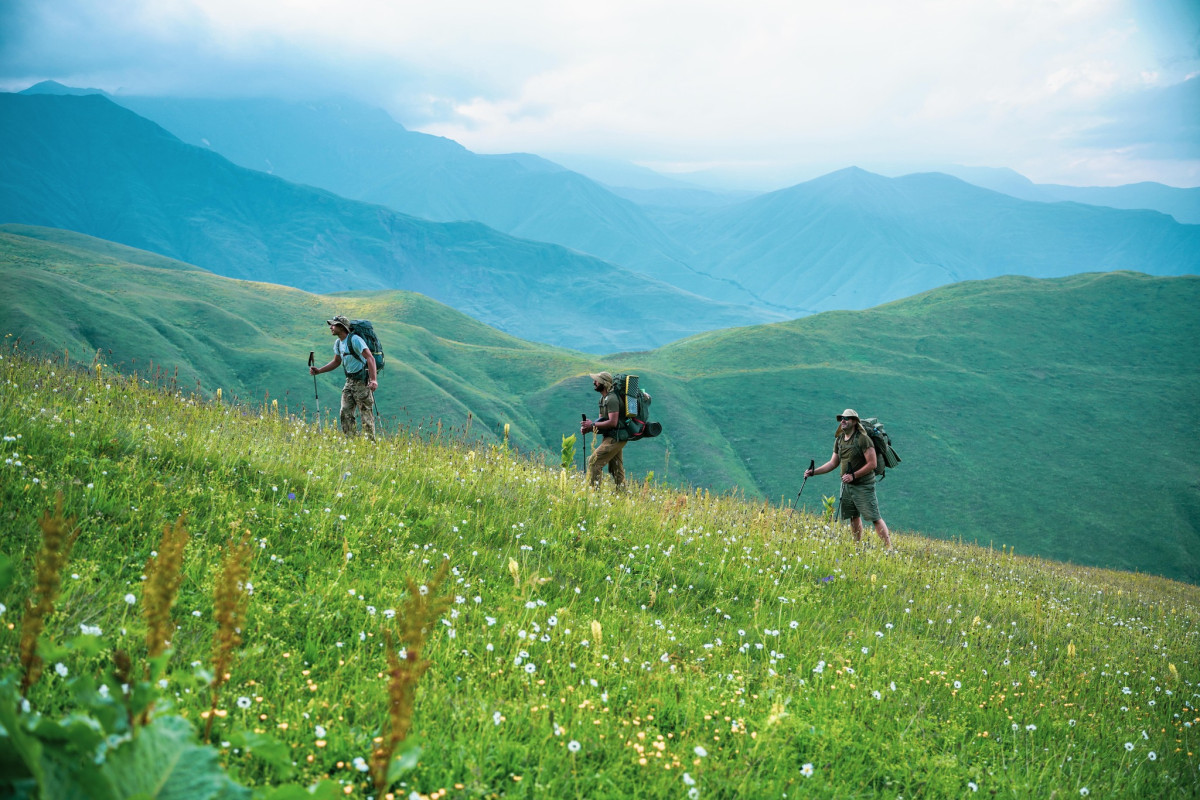A New Beginning at the End of the Country Road
Published: Sep 10, 2025 Reading time: 5 minutes Share: Share an articleSustainable Agriculture Reviving Georgian Mountain Communities
Sustainable local production methods offer prospects and help protect natural resources for the future

The WELTNACHRICHTEN editorial team visited a project by the Austrian Development Agency (ADA) and its Czech counterpart in Georgia.
Approximately 70 km north of the Georgian capital, Tbilisi, lies Aragvi, one of eight protected landscape areas. The route first follows a main road that connects Georgia with Russia. Trucks line up for kilometres along the roadside, loaded with goods for their northern neighbour, one of Georgia’s largest trading partners. They must wait until the road is cleared; during the day, they give way to regular traffic.
Just before reaching the Zhinvali Water Reservoir—a massive lake that supplies Tbilisi with drinking water and electricity—we turn onto a narrower road, leading deeper into the valley. After about 65 km, just before the asphalt ends, we arrive in the village of Korsha, home to Amiran Arabuli.
Cheese and Butter from the Mountains
Amiran Arabuli, 59, and his family only spend winters in Korsha. In summer, they return to Tsinkhadu, their home, located over 2,000 metres in the mountains. Getting there is a challenge: there’s no real road, just a rough dirt path. There’s no electricity grid up there either.
Amiran grew up in this mountain village and still keeps about 40 cows in the summer, using their milk to produce cheese and butter. He hasn’t left, thanks to a project by the Czech Development Cooperation and the Austrian Development Agency. Together, they support people in the Aragvi Protected Landscape Area in building stable, sustainable livelihoods.
Migration from rural areas to cities, especially to Tbilisi, is a major issue in Georgia. Often, only older people remain, which severely hampers the economic development of rural regions. However, many areas, such as Aragvi with its impressive mountain ranges, peaks, glaciers, and picturesque river valleys, have tremendous potential.
Better Food Security Through EU Hygiene Standards
“I was about to move to Tbilisi,” Amiran admits. He was then approached by People in Need, the NGO managing the Austrian-Czech project. The project partners spoke to villagers and explained that they could apply for support.
For Amiran, it was clear: his milk production—and thus his income—would only have a future if he could meet increasingly strict hygiene standards, an essential part of food and nutritional security.
He received materials to build a small dairy facility, a pasteuriser, and solar panels. Now, during the summer months, he produces cheese and butter that meet EU standards.
Even without exporting abroad, Amiran still has local customers, mostly thanks to word-of-mouth, which has earned him a loyal following in Tbilisi.
“People appreciate my cheese,” he says. “I make it the traditional way, and they like that.”
Daring Something New
Nukri Lashkarashvili, 35, also knows the value of traditional products. Like Amiran, he comes from a mountain village called Dzveli Tsiprani, but he now lives in the valley. He, too, received support through the project.
To reach his small farm, we turn off the main road onto a gravel path, then park beside a narrow suspension bridge over a small river. The bridge has to be routinely rebuilt by the municipality after snowmelt washes it away each year. On the far side are a few houses nestled in stunning natural surroundings. In front of Nukri’s house stand a few stables. He shows us the foundation for a new, larger barn where his 25 cattle will be sheltered next winter.
Nukri is in the process of converting his farm from dairy to meat production. He learned how through specialised training sessions, including visits to demonstration farms, funded by the Austrian-Czech project. He also received a new mower as part of the support.
“With the mower, I can produce 50% more hay,” he explains. That’s crucial for ensuring enough winter feed. In the summer, his cattle graze on the surrounding alpine pastures.
Protecting and Using Natural Habitats
The Austrian Development Agency, together with the Czech Development Agency, promotes sustainable development in Georgia’s Aragvi Protected Landscape Area. The goal is to improve the living conditions of the people who reside there.
The focus is on economic empowerment through modern livestock farming, beekeeping, the marketing of local organic products, and sustainable tourism. At the same time, schools are being modernised, medical care is being improved, and awareness of gender equality and social inclusion is being strengthened.
The project also aims to protect the region’s unique natural landscape by establishing effective management of the protected area and conserving natural resources. For example, pastures are important habitats for many animal and plant species and are a key part of the Aragvi region’s distinct natural and cultural heritage.
This project combines traditional food production with sustainable animal husbandry and a respectful approach to nature. Through diverse, organic, and local production methods, people secure their livelihoods and play an active role in preserving natural resources.
Building a Future at Home
Everyone here talks about how beautiful life in the mountains is, including Amiran Arabuli. He hopes to return there full-time with his family. “We even renovated our old house in the village because now we see a future there,” he says. “Our goal is to live year-round in the mountains and grow vegetables too.”
What about the village in the valley? It was never meant to be permanent. It was built as temporary housing for workers. In the mid-20th century, the Soviets had planned to dig a long tunnel at the end of the valley to connect Georgia with Russia, which was never built.
Today, the trucks still roll through another valley—over the 2,400-meter-high Jvari Pass—across the border. As we begin our journey back to Tbilisi in the early evening, the trucks are already making their way across the mountains.

